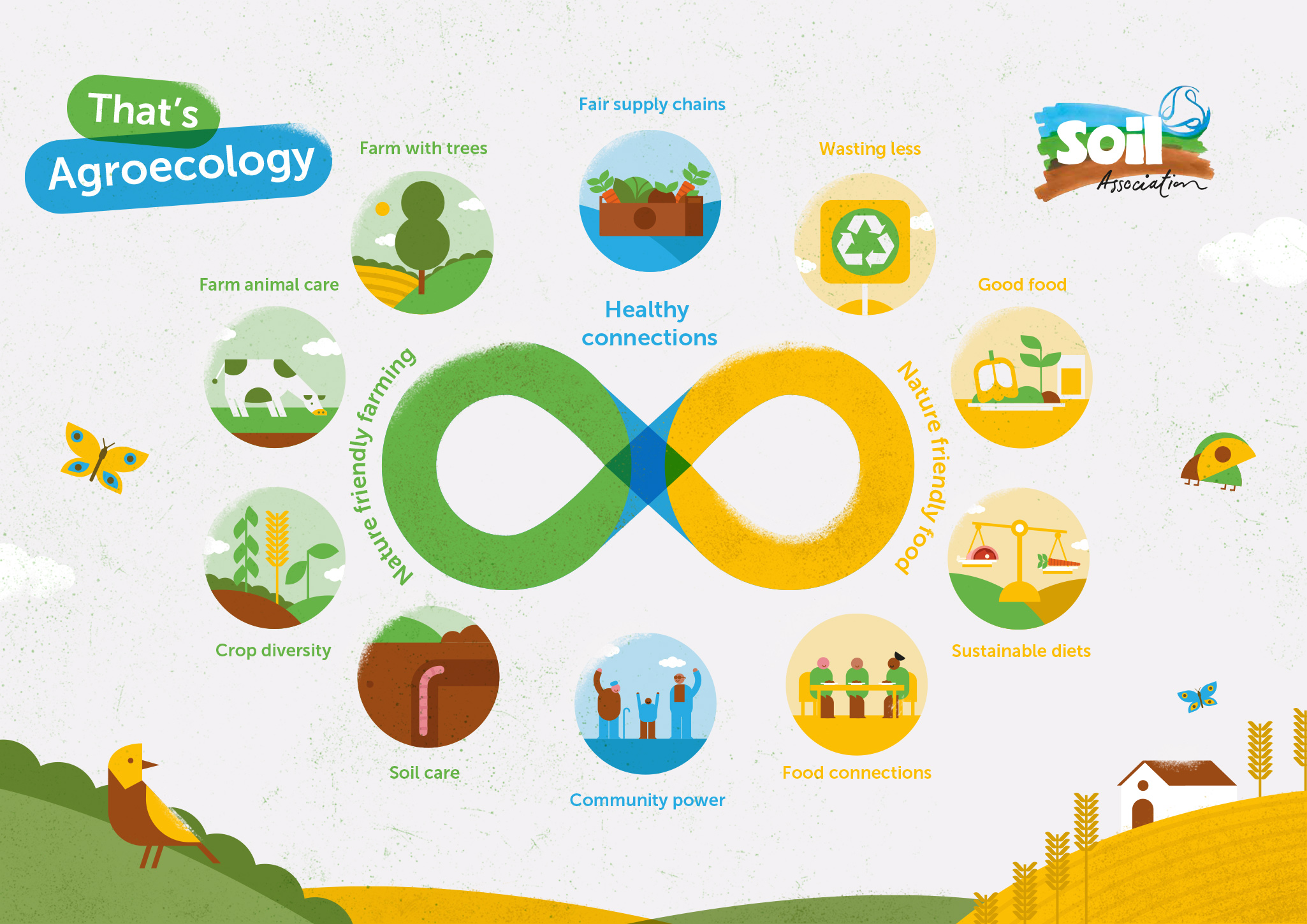
Ten-years to agroecology and sustainable diets
We know that our food and farming system can help to resolve the climate, nature, and health crises. But we have to move quickly and make choices that help the transition towards agroecology and sustainable diets by 2030.
Agroecological systems, like organic, produce healthy diets for all in a sustainable way that works with nature and tackles climate change.
Our 2021 report tracks progress in this transition. It looks at the key challenges and highlights the opportunities that will help secure a better future.
Agroecological practices come with a wealth of benefits, both for the environment and the economy.
Some of the main benefits are:
- mitigating climate change
- managing the impact of farming on wildlife
- giving local farmers the ability to farm in a way that suits their community

We're asking the government to announce a clear plan to help farmers dramatically reduce their use of nitrogen fertilisers, pesticides and antibiotics for climate, nature and health.
This was a leading recommendation of the Food, Farming and Countryside Commission.
The plan should:
- set targets to increase the area of land under organic farming, agroforestry and farm woodland
- support more fruit and veg growing in the UK
- champion outdoor reared, grass-fed livestock (like cows and sheep) ahead of indoor grain-fed livestock farming (intensive beef, pork and poultry)

An organically farmed Europe can feed a growing population a healthy diet
The 'Ten Years for Agroecology in Europe' report models a future where farming in Europe can respond to climate change, phase out pesticides and maintain vital biodiversity, whilst providing a sufficient and healthy diet for a growing population.
Ten years to agroecology in the UK
How do we feed a growing population, healthily, respond to a changing climate and create a resilient, secure and fair farming system to tackle the nature and health crises?
The Farming for Change report explores these questions in detail and reveals the research that shows that, with the right enabling conditions, we can grow enough healthy food for a future UK population.
Hear from our Farmer Ambassadors, championing farmer-led change
We want to see a transition to agroecological practices led by farmers and citizens, that helps to restore nature, tackle climate change and support healthy, diversified and resilient food production.
This requires a commitment to whole-farm approaches and support for systems like organic, which deliver multiple benefits for society, nature and animal welfare.
Hear from our Farmer Ambassadors about their agroecological practices in the video to the right.
A smooth transition to agroecology
Denise Walton farms organically at Peelham Farm in the Scottish Borders. Since taking over the farm in 1993, she has farmed to encourage wildlife, such as birds and pollinating insects.
“Even before we started converting [to organic] we started restoring hedges and fencelines... There's no point putting a hedgerow in a field and that's it... It's all about connectivity, because wildlife - whether it's small, seed-eating birds or rodents, or even insects - will always follow corridors where there's some kind of security from predators, or there's a source of feed.
"The direct benefits are for the birds but there are indirect benefits to soil health, for example. The natural breakdown of organic matter, increased soil and earthworm activity, that’s all a benefit."
So why choose organic?
The way we farm and eat can make a world of difference. Organic is the best certifiable example of agroecological farming and offers many benefits:
Help transform the way we eat, farm and care for the natural world
Globally, around 30 percent of greenhouse gas emissions stem from food and farming. We have a chance to come together around the solutions we know work.

